Wouldn’t You Like to Be Here Right Now?
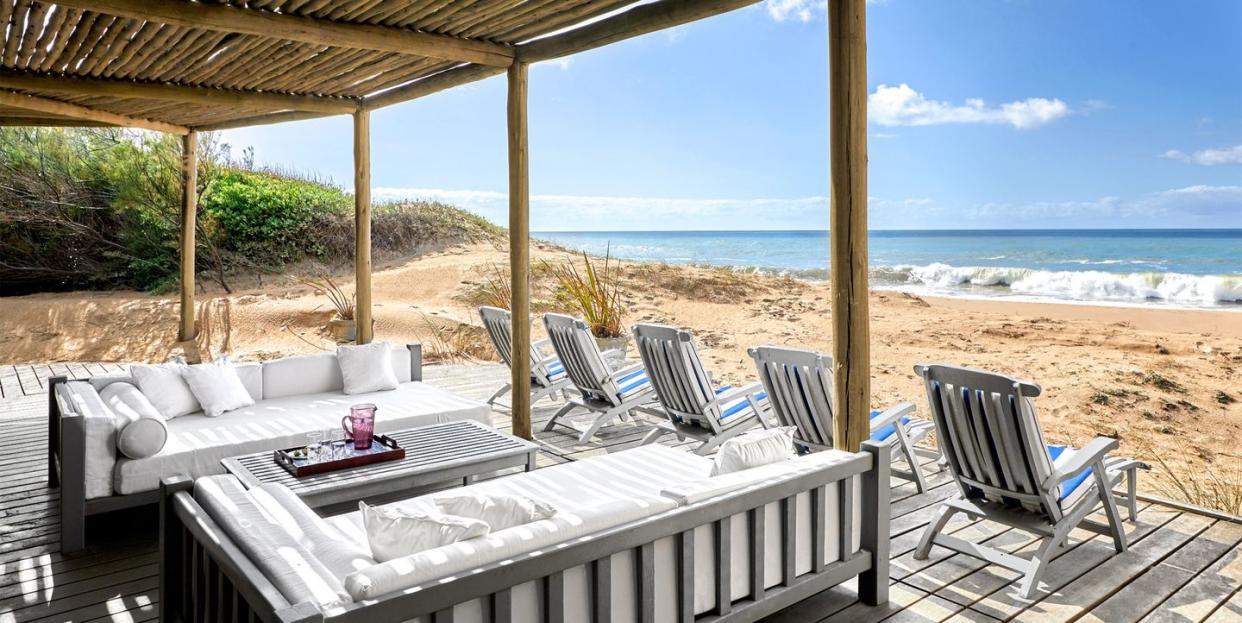
Once a remote getaway, the beachfront town of Punta del Este, in southern Uruguay, has met a fate similar to the world’s other ocean-facing utopias. Decades ago, private homes began to sprout along the coast, followed by small hotel developments and, eventually, the inevitable towers that rose to fix their silhouettes on the horizon. A few miles away, in Punta Piedras, one residence has so far been able to retain the charm afforded by seclusion. Initially designed as a personal vacation home by the late Argentine architect Mario Connio, the house was sold more than two decades ago to a couple who use it as a retreat from their home base in San Francisco.
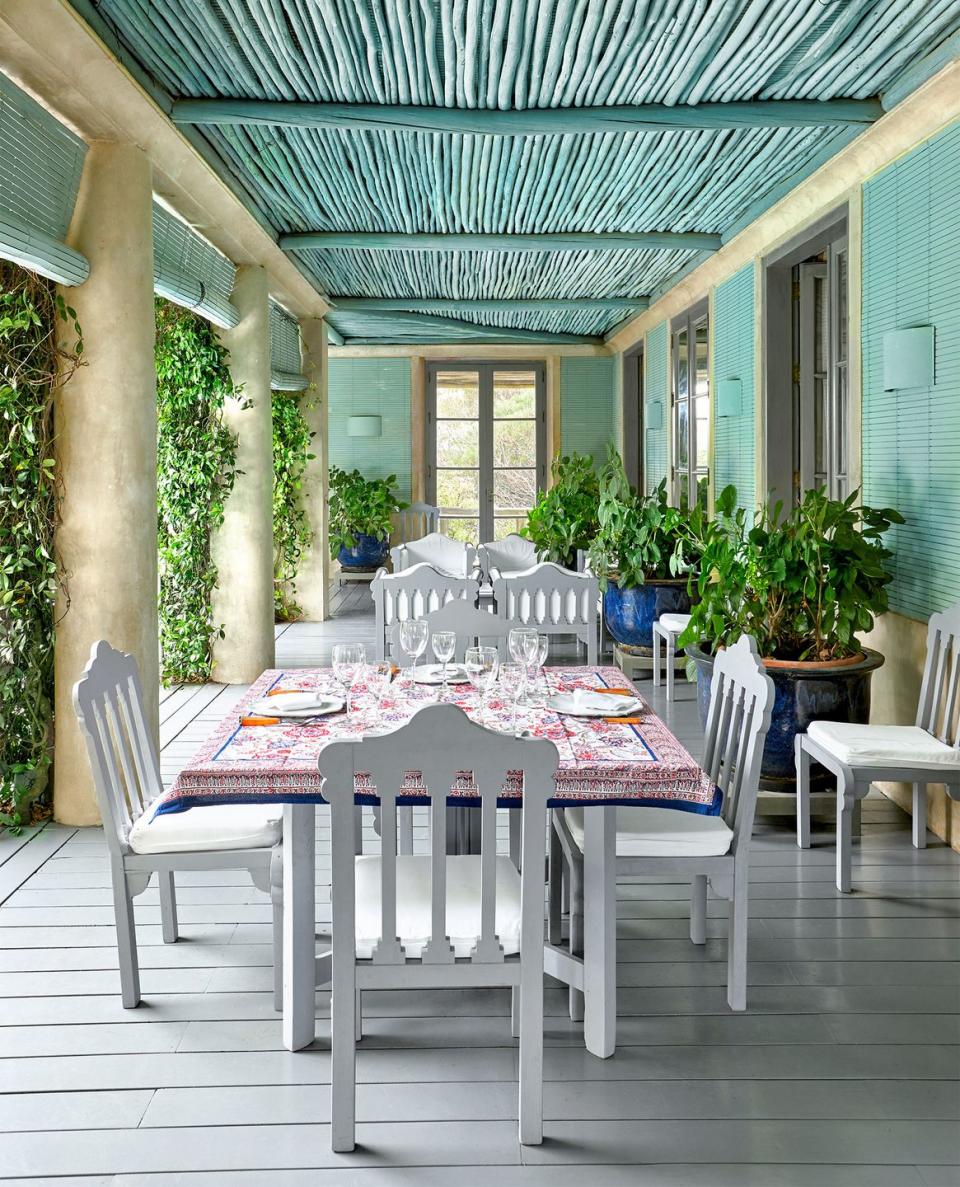
It is an unimposing structure, washed in a pale ocher hue reminiscent of the sand that seems almost to engulf the project. Viewed from afar, it bears little hint of what it harbors. The home’s lavish interiors feature an array of patterns and textures; most objects were selected and arranged by Connio.
“It was so spectacularly beautiful, Mario’s own house that he built for himself,” says the wife, who left the property mostly intact. Between two bookshelves, one piece—a map of South America—is her most cherished, perhaps because she herself was raised in Argentina. “We said if we couldn’t have the map, we wouldn’t buy the house,” she says with a smile, recalling their first visit. “That was where we put our foot down.”
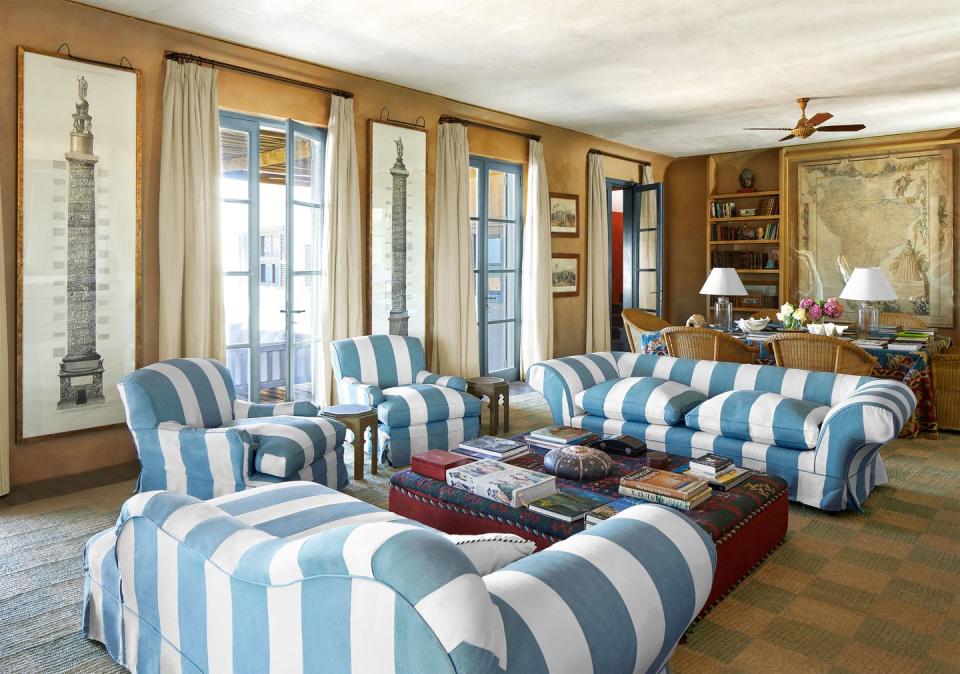
Though there is a unifying aesthetic, the mood is set by a backdrop of color—varied and muted hues of pink, green, blue, and gray. The eclectic decor consists of vintage pieces, curios procured from travels, and striking sofas upholstered in a bold pattern of white and seafoam-green stripes. Made in England, the distinctive “Connio stripe” had been discontinued, but the couple convinced the manufacturer to run the pattern again, so they could reupholster.
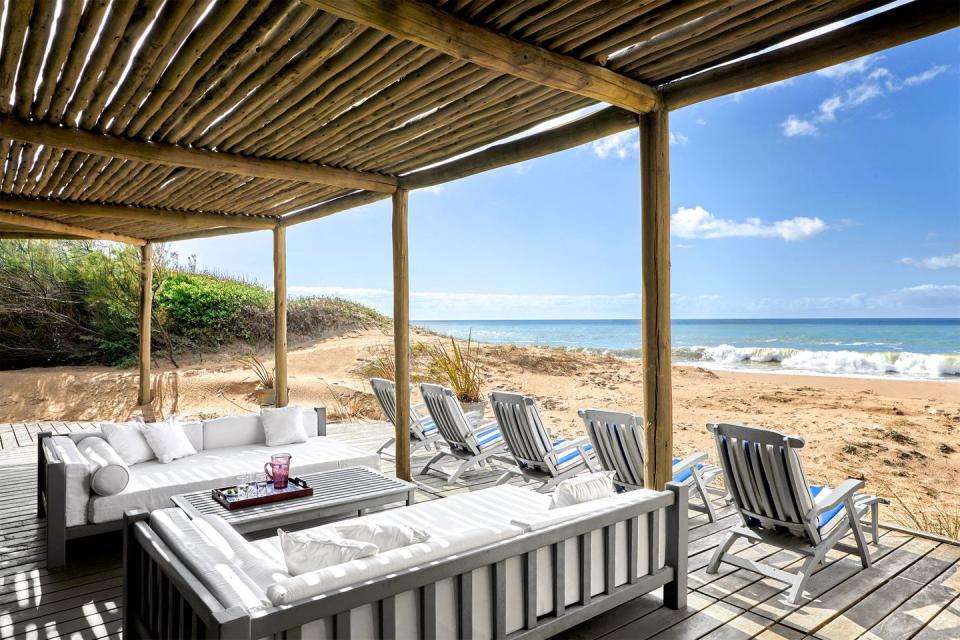
In his personal life as well as in his oeuvre, Connio favored a nonchalant sort of excess and extravagance; spaces overflowing with color but tempered by areas that show more restraint, in which abundance is expressed through light. “He was a devout aesthete, an extremely refined person,” recalls his friend, photographer Ricardo Labougle. Having never married or had children, the architect—whose main residence was in Madrid—hosted guests often, and with pleasure. “He would cook simple meals, but always with good wine and something special—truffle oil or a beautifully arranged charcuterie board,” Labougle recalls. “Those were rituals that were always present.”
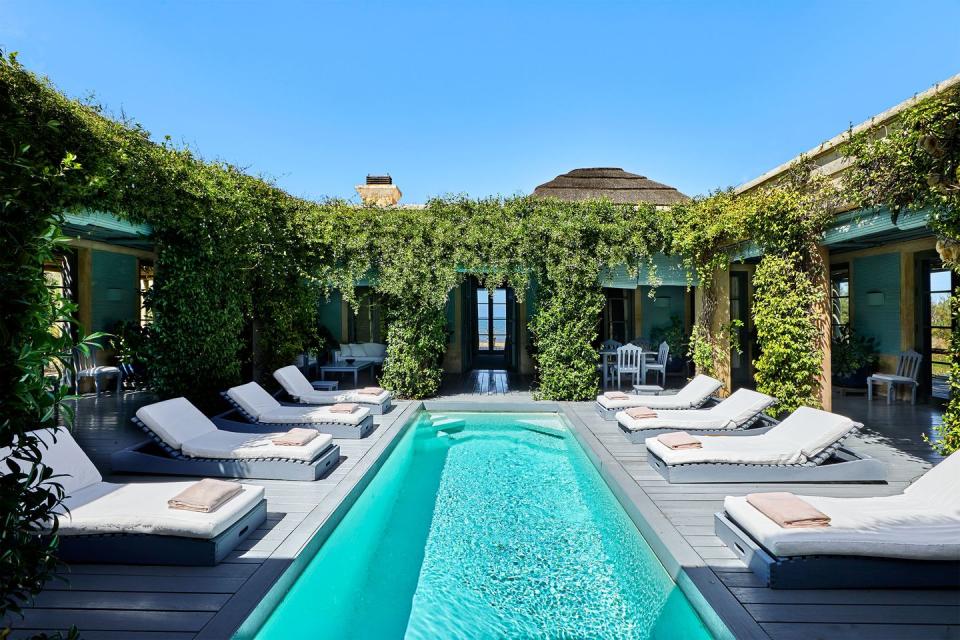
The homes that architects design for themselves are often the truest expressions of their own values. Connio’s personal fixations—the proportions of ancient Roman architecture, the intricate textiles of India and Morocco, nature and gardening—were especially resonant in his own homes.
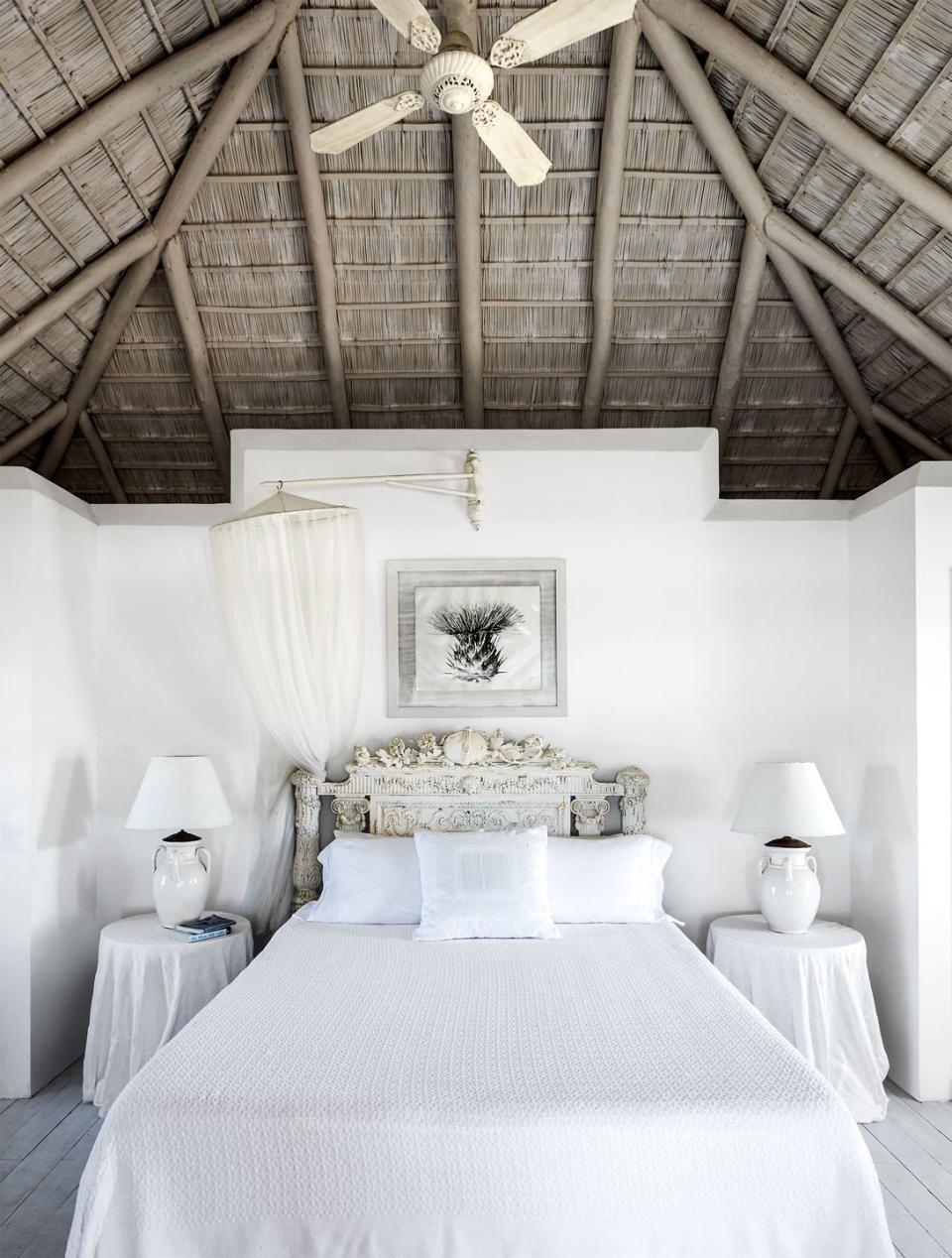
The house in Punta Piedras echoes its architect’s view that spaces should dictate a way of life: multiple dining areas in exteriors and interiors; a panoramic ocean view reserved for the intimacy of the primary bathroom, itself a grand space for easy lounging; an enclosed pool area embraced by lush vines that crawl up and cascade down its surrounding columns.
For the current owners, adopting the lifestyle that the house encourages has been a pleasure. “No matter where the wind is coming from, there’s always a place to be outside, where we can set up a meal,” the husband says.
The couple’s time in Punta Piedras serves as a pause from the hectic flow of city life: breakfasts eaten in the courtyard, afternoons lying by the pool, and evenings watching the sunset from the front deck. Most important, in normal times, Connio’s penchant for entertaining remains. “We always have people over,” the wife says. “The house is always full to the brim.”
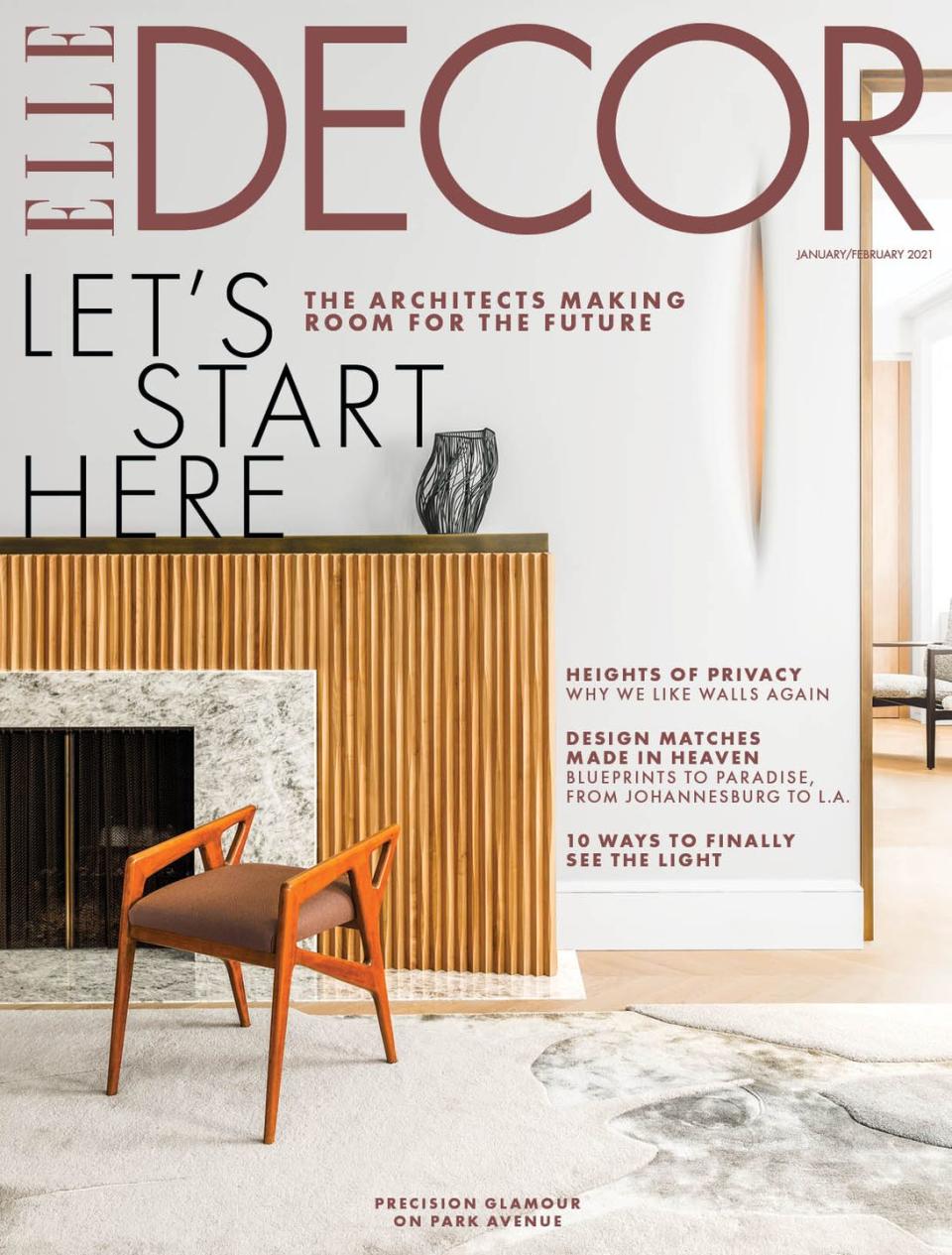
This story originally appeared in the January/February 2021 issue of ELLE Decor. SUBSCRIBE
You Might Also Like

